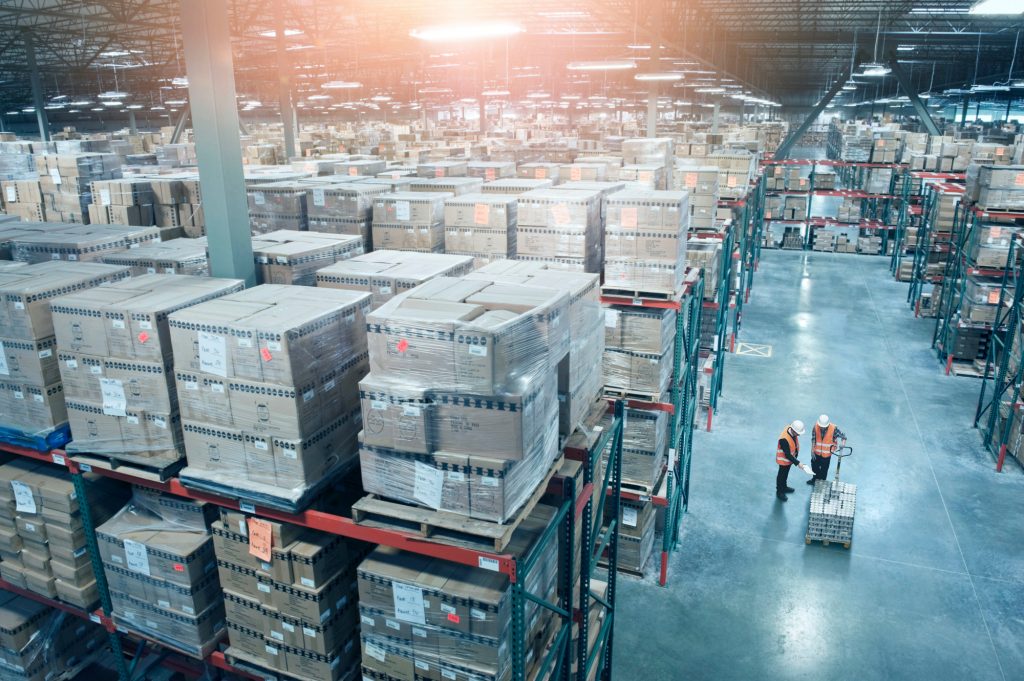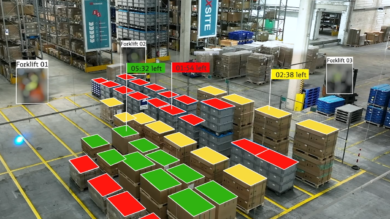Seamless operations are what Logistics Service Providers globally strive for when they have won a business – while running existing Contract Logistics sites or opening a new center. The reality sometimes looks different and operational excellence is needed. In addition, customer requirements are constantly changing, and the innovation cycles are speeding up. Keeping this in mind, today’s smooth-running operations need a continuous improvement process to meet the customer requirements, especially regarding innovative solutions and sustainability. This is becoming a critical differentiator when it comes to competitors.
Logistics Matters met with Orla Hahn, Executive Vice President at DB Schenker, for an interview. Within her role, she is responsible for operational excellence and implementation globally. Orla is an international leader and expert in the industry; she holds a Master of Science in Industrial Engineering from Germany and obtained an MBA in Singapore. She is also a true believer of Lean Management and Six Sigma and is being certified as a Black Belt out of the USA. She worked worldwide, gaining experience related to the manufacturing and logistics industry on three continents – Asia, the Americas, and Europe.
Logistics Matters: With the understanding that your work experience has solely been in logistics, what does operational excellence in the industry mean to you?
Orla Hahn: Operational excellence is simply essential! Customers expect world-class Contract Logistics services, and we expect these services to be mutually beneficial for our customers and us as a company. Consequently, our 600+ site operations globally must run predictably and efficiently. We strive to get better day by day! Ensuring successful new business implementations are just as crucial and the avoidance of underperforming sites. In summary, this is what operational excellence is all about: we want to drive a superior customer experience that meets or even exceeds requirements and at the same time accelerates profitable growth. Our initiatives are geared towards further optimizing our operations and the way we run our businesses at Contract Logistics for greater efficiency, quality, and service. Therefore, we need to be agile for logistics services of the future.
“During the pandemic, operational excellence had gained even more importance when the safety of our colleagues became critical.”
In addition to this, I would like to point out another topic; during the pandemic, operational excellence had gained even more importance when the safety of our colleagues became critical. While many people have been working from home, operations are still required to continue running flawlessly. It goes without saying, a safe working environment for our colleagues, especially at the warehouses, is a crucial success factor. At DB Schenker, we take care of our employees and support them in staying healthy and resilient. All of this while relentlessly driving operational excellence and delivering first-class service consistently. Operational excellence is DB Schenker’s value proposition towards our customers – not only during the pandemic. We are a partner our customers and employees can rely on.
Logistics Matters: Looking at developments in logistics, what are the key global trends in the industry?
Orla Hahn: Change in the logistics industry accelerates very fast, and there are currently many trends and technologies on the market. I want to outline the following three: Digitization/Big Data, AI/Robotics/Automation/ Autonomous Logistics, and E-Commerce/Omnichannel Logistics.
When it comes to Digitalization/Big Data, logistics providers manage a massive flow of goods and at the same time create vast data sets. The logistics industry is uniquely positioned to benefit from applying data science in almost all aspects of the supply chain.
With the second major trend in Artificial Intelligence/Robotics/ Automation/Autonomous Logistics, the industry is facing a rising increment of qualified labor shortage on the market along with the growth of labor costs which leads to the need for automation, robotization, and AI-based technologies (e. g. 3D vision mobile robots, automated goods-to-person systems). Further investments in these technologies will generate significant benefits in terms of cost savings and increased productivity.
And last, E-Commerce/Omnichannel Logistics trading over the internet has tremendously gained speed. This market segment is experiencing high growth caused by B2C and B2B changes in habits during COVID-19 and is a very attractive opportunity for DB Schenker.
I am convinced that these three trends will enable us to cope with challenges, ease jobs and find new and agile ways of working to unlock potential.

Logistics Matters: How do you deal with these trends in operational excellence?
Orla Hahn: Look, we need to always think from a customer’s perspective, and we need to ask ourselves how we can satisfy our customers while being an employer of choice at the same time. Innovative solutions are no longer “nice to have” in a customer-centric organization but instead expected from our customers. It is our primary goal to continuously select and ensure the best solution for specific customer demands. So, we need the culture and mindset internally to drive and explore innovations by constantly challenging the status quo and not becoming complacent with what we already have.
We have to keep the momentum going and execute continuous improvement while adjusting to trends. For our operations, that means we look at our sites to identify the highest potential for retrofitting to increase productivity, enable higher quality, and seek better cost efficiency through new technologies. And for new customers, we want to find the right fit and most innovative solution considering their needs.
To offer this as an ongoing process, we need the correct employees with the right skill set. We need to continuously develop and provide a culture setting that supports continuous learning.
Logistics Matters: Working in a warehouse is not the most digital working environment. But we see major changes such as DB Schenker’s investments into Gideon Brothers for robots and artificial intelligence. What do you expect in the future, and how do you prepare?
Orla Hahn: We see a rapid change in digitalization in the logistics industry. Partnering up with start-ups and even investing in them, like Gideon Brothers, is one way we keep up to speed by integrating start-up technologies into our operations. This will enable our business to be ahead of our competitors. It is a winning formula and a business driver.
“We embrace new technologies at DB Schenker – this is part of our culture!”
We need to upskill our people to operate in this fast-moving environment, keeping pace and continuously adapting to this digital journey. Take our site managers as an example; we have implemented a dedicated Site Leadership Development Program as an integral part of our strategy. The program teaches valuable leadership skills that we consider core to our brand. A site leader who lives and breathes technical development is then well-equipped to understand the positive impact innovations have on our business. This will, of course, deliver customer service successfully. And it is not only our site managers: all levels of our organization need to be prepared to maximize the utilization of digital solutions in their day-to-day work. We all need to expedite the transformation of our digital environment – an open mindset underlines this culture at DB Schenker – we embrace new technologies.
Published November 2021










